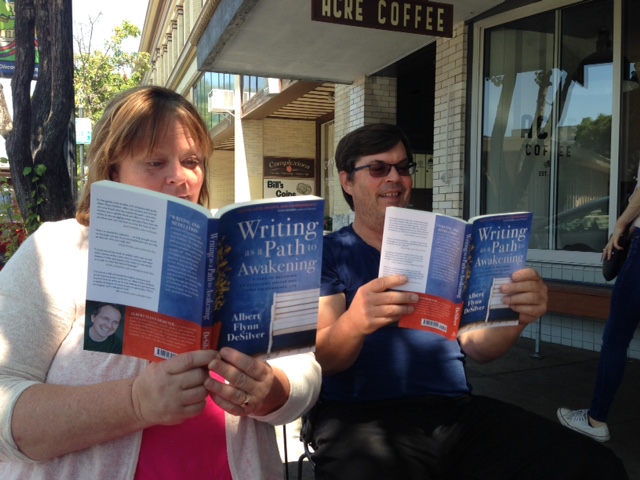 When a poet writes a novel the moon coils up into a copper-headed snake and hisses secrets. The horizon line bends like a cello string after the sun nods off into the thinning green sea to sleep. When a poet writes a novel the autumn mountains weep lazy icicles and the frost rises into the night sky giving birth to impatient stars. And then we have to complete the sentence, tie it to the following one, bundle it into a paragraph, and keep the engine of the narrative chugging along. Ultimately the poet must return to earth to wade through the thick peat of narrative cohesion.
When a poet writes a novel the moon coils up into a copper-headed snake and hisses secrets. The horizon line bends like a cello string after the sun nods off into the thinning green sea to sleep. When a poet writes a novel the autumn mountains weep lazy icicles and the frost rises into the night sky giving birth to impatient stars. And then we have to complete the sentence, tie it to the following one, bundle it into a paragraph, and keep the engine of the narrative chugging along. Ultimately the poet must return to earth to wade through the thick peat of narrative cohesion.
I am used to writing in improvisational poetic fits and starts, disjunctive phrase-lines, anarchistic musical word-burst—not the “tyranny” of complete sentences. I wrote poetry almost exclusively for fifteen years, and so, several years ago when it came time to write prose I was unsure if I could even complete a sentence. How would I go from “/a similar node. No ashes/” in an early poem from Letters to Early Street, to “What sent me running in the first place is the last time I ever saw my father alive” in my novel Brooklyn, Wyoming.
How to make such a writerly transition was a huge leap for me, and probably challenges anyone shifting genres. Whether you are going from writing poetry to writing novels, script writing to novel writing, memoir to novel writing, or even copy writing to novel writing—the practice is the same. Practice. Reading and writing, writing and reading. Sprinkle in some poetry, rinse and repeat.
For a poet (any writer, really) to transition to the novel, on one level you need to master the narrative thrust of cohesion and flow, and on another the dance of story structure itself. In writing poetry you have a little more leeway, right? You are expected to juxtapose, to leap, divert, dissociate. In novel writing, not so much. People want to follow that narrative charge forward, they expect an expansion and evolution of a desire-line through time; A (wanting) crashing into B (climaxing), leads to C (resolving)—to over-simplify things a bit. When reading a novel people don’t want a seemingly random musical expulsion of words catalyzing an instant.
Or do they? I always tell my students that poetry is a field of possibility, the ground of all great writing. Isn’t the highest compliment paid to a novel that it’s poetic? Meaning there is a flow and musicality to the prose, that there is deep sensory-specific imagery, metaphor, and even personification. Generally speaking poetry is about compression and novels about expansion. But is that always true? Tell that to Walt Whitman, whose long flowing narrated poems could come off at a certain glance as stories or even novellas. On the contemporary front Jenny Offill’s novel “Dept. of Speculation” reads very much like a long poem set up as it is in short stanzas with repetition, italicized sections, quotes, and sharp music phrasing usually reserved for poetry.
All this to say there are no hard and fast rules here, and the most interesting writing from any era is often the work that blurs or even annihilates the boxes, crushes the categories and genres. It’s the work that celebrates the uncertainty of the new and mysterious—work that is confident enough in its being-ness as to not even need a category.
At the end of the (writing) day, writing a novel is a combination of showing with all the poetic flair and sensory particularity you can muster, while simultaneously telling the story, laying down the facts, narrating the sequence of events, peppering them with the clashing dynamics of your original characters.
You don’t need to call yourself a poet to write like a poet. But you do need to read poetry. Alternate your novel reading with the reading of poetry. Furthermore read novels as you would a poem, line by line, and see what happens to your novel writing. Allow poetry to inform the novel as the moon informs the sun, a lone slate cloud the vastness of the azure sky, the shriek of a barn owl the midnight air. When you get confused listen to the musicality of language at play. Let the wilderness of the unexpected in—sing it loud and proud on the page through the meanderings of your adventurous hand, and see how your story shines ever more brightly.
When a poet writes a novel the moment glistens with an acute brightness, an original brilliance bridging that unexpected wildness of musically languaged sensory impression with the structural flow of the narrative arc. Write from this point of unity, and thrive—as writer, as human being.

2 comments